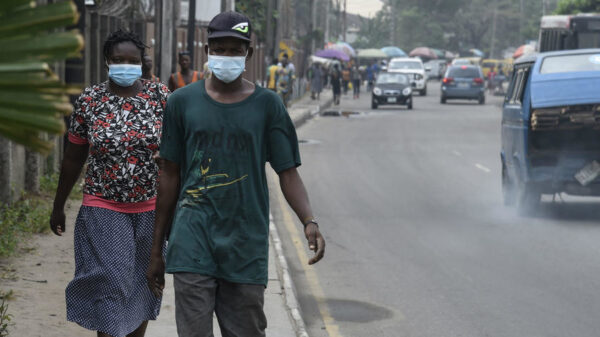New studies have shown that the coronavirus can survive in the air in some settings, triggering “airborne precautions” for medical staff by the World Health Organization.
It is known extensively that the virus is transmitted through droplets, or little bits of liquid, mostly through sneezing or coughing.
But new studies show that the virus can also survive in the air for a period of time under certain settings.
Dr. Maria Van Kerkhove, head of WHO’s emerging diseases and zoonosis unit, told journalists on Monday that “When you do an aerosol-generating procedure like in a medical care facility, you have the possibility to what we call aerosolize these particles, which means they can stay in the air a little bit longer.”
“It’s very important that health-care workers take additional precautions when they’re working on patients and doing those procedures,” She added.
Covid-19 is a respiratory disease that spreads through human-to-human contact.
Often it is spread through droplets from sneezing and coughing but its germs can also be left on inanimate objects.
It can survive in the air
However it can also go airborne and stay in the air depending on factors such as heat and humidity, experts say.
It is not yet known for how long the virus can survive in the air which means people would have to take precaution to remain safe.
What experts are now studying about the virus is how it reacts based on different environmental conditions.
The Scientists are hoping to figure out how humidity, temperature and ultraviolet lighting affects the disease when it lives on different surfaces, including steel.
“WHO continues to recommend that isolating, testing and treating every suspected #COVID19 case, and tracing every contact, must be the backbone of the response in every country. This is the best hope of preventing widespread community transmission”-@DrTedros #coronavirus
— World Health Organization (WHO) (@WHO) March 18, 2020
Van Kerkhove said “so far … we are confident that the guidance that we have is appropriate,” she added.
Health officials are now being asked to wear the N95 masks which can filter out about 95% of all liquid or airborne particles.
“In health-care facilities, we make sure health-care workers use standard droplet precautions with the exception … that they’re doing an aerosol-generating procedure,” she said.
The search for a vaccine
The world is still waiting for a vaccine to fight the deadly Coronavirus which has become a pandemic.
Clinical trials are still ongoing as scientists race against time to get a cure or better treatment.
But out of the over 200,000 cases of the virus recorded globally, over 80,000 people have recovered using various forms of treatments.
Some of the drugs mentioned include anti-Malarial, HIV-AIDS and Ebola medicines.
Most of these drugs help to reduce the rate of damage caused by the virus.
Breakthrough: First dose of coronavirus vaccine to go on trial
Source: Africafeeds.com


